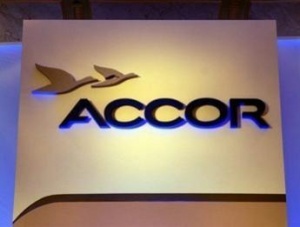Accor Hotels lays out ambitious PLANET 21 environmental social responsibility programme

Accor is aiming to reduce its worldwide CO2 emissions by ten per cent by 2015 – a concrete goal that is just one of many measures laid out in PLANET 21, a comprehensive new sustainability programme which launches today.
PLANET 21 identifies 21 areas of activity where improvements will be made, each with a specific policy for action and a measurable goal.
The global undertaking will involve all of the Group’s 145,000 employees and many millions of its guests.
PLANET 21 encompasses a broad spectrum of activity.
Targets to be met by 2015 include:
A ten per cent cut in energy consumption across all owned and leased hotels.
A 15 per cent cut in water consumption across the same hotels.
Training in disease prevention for at least 95 per cent of employees.
The use of eco-label products in at least 85 per cent of hotels.
The promotion of healthier meals on menus in at least 80 per cent of hotels.
The removal of endangered seafood species from all menus.
Accor runs 4,400 hotels, from the inexpensive to the luxurious, in 90 countries around the globe.
PLANET 21’s goals have been set with this broad diversity in mind.
“Accor has a strategy of expansion and intends to become the undisputed leader in the global hotel industry, but we are reaffirming our commitment to achieving growth only in a responsible manner,” said Denis Hennequin, chairman of Accor.
“With the PLANET 21 programme we are putting sustainability at the core of our business strategy, and social responsibility at the heart of our development and innovation.
“I am convinced that PLANET 21 will prove to be a powerful driver of competitiveness for our brands, increasing our appeal among our customers and partners and improving loyalty among our employees.”
The name PLANET 21 was chosen to echo Agenda 21, an international sustainability accord signed in Rio de Janeiro in 1992.
The title reflects the urgent need for action in the 21st Century to protect the ecosystems that make our planet habitable.
Accor believes that a well-intentioned, best-guess approach to sustainability is insufficient for a company of its stature.
Prior to drawing up PLANET 21, the Group invested in unprecedented research carried out by consulting firm PwC.
A global first, the research measured the impact of Accor’s hotels around the world, including building and refurbishment work.
The results overturned many assumptions, revealing that hotel kitchens consume vastly more water than their laundries, for example.
A separate study recorded attitudes to sustainability among international hotel customers, as well as the growing importance of the topic.
Together, the two research projects put Accor in a unique position to make improvements based on firm facts.
Sophie Flak, executive vice president for sustainable development and academies at Accor, said: “Today, 70 per cent of our major-account customers include sustainability among their criteria for appointing suppliers, and half of our customers apply this policy when choosing hotels.
“That is one reason why we believe it is important and appropriate to involve our customers in PLANET 21.
“We each have a responsibility to improve our activities, but by working together we can achieve more for ourselves, for society and for the environment.”
One of the important goals of PLANET 21 is the preservation of ecosystems, an activity pioneered by Accor through its reforestation programme.
Two million trees have already been replanted, funded by savings in laundry bills as a result of the informed choices made by guests and employees alike.
To accelerate this effort, Accor is drawing on the expertise of Tristan Lecomte, an expert in community reforestation and founder of two hands-on projects: Alter Eco and Pur Projet.
Lecomte said: “PLANET 21 corresponds perfectly to the Pur Projet approach.
“With the contribution made by their guests, the hotels participate directly in protecting their environment and the development of local communities.
“My aim is to support development of this scheme by integrating it more closely and more locally in the Group’s different business lines.”

